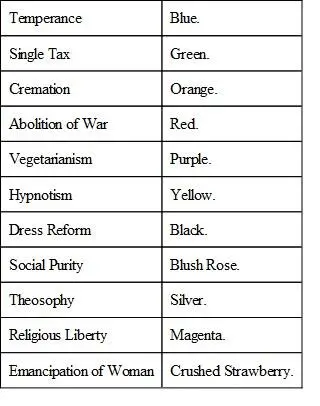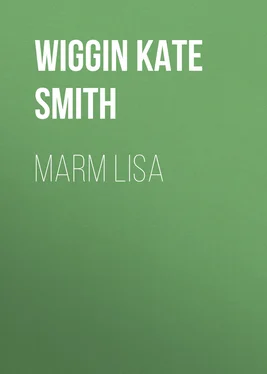Kate Wiggin - Marm Lisa
Здесь есть возможность читать онлайн «Kate Wiggin - Marm Lisa» — ознакомительный отрывок электронной книги совершенно бесплатно, а после прочтения отрывка купить полную версию. В некоторых случаях можно слушать аудио, скачать через торрент в формате fb2 и присутствует краткое содержание. Жанр: foreign_prose, foreign_antique, на английском языке. Описание произведения, (предисловие) а так же отзывы посетителей доступны на портале библиотеки ЛибКат.
- Название:Marm Lisa
- Автор:
- Жанр:
- Год:неизвестен
- ISBN:нет данных
- Рейтинг книги:3 / 5. Голосов: 1
-
Избранное:Добавить в избранное
- Отзывы:
-
Ваша оценка:
- 60
- 1
- 2
- 3
- 4
- 5
Marm Lisa: краткое содержание, описание и аннотация
Предлагаем к чтению аннотацию, описание, краткое содержание или предисловие (зависит от того, что написал сам автор книги «Marm Lisa»). Если вы не нашли необходимую информацию о книге — напишите в комментариях, мы постараемся отыскать её.
Marm Lisa — читать онлайн ознакомительный отрывок
Ниже представлен текст книги, разбитый по страницам. Система сохранения места последней прочитанной страницы, позволяет с удобством читать онлайн бесплатно книгу «Marm Lisa», без необходимости каждый раз заново искать на чём Вы остановились. Поставьте закладку, и сможете в любой момент перейти на страницу, на которой закончили чтение.
Интервал:
Закладка:
Kate Douglas Smith Wiggin
Marm Lisa
I
EDEN PLACE
Eden Place was a short street running at right angles with Eden Square, a most unattractive and infertile triangle of ground in a most unattractive but respectable quarter of a large city. It was called a square, not so much, probably, because it was triangular in shape, as because it was hardly large enough to be designated as a park. As to its being called ‘Eden,’ the origin of that qualifying word is enveloped in mystery; but it is likely that the enthusiastic persons who projected it saw visions and dreamed dreams of green benches under umbrageous trees, of a green wire fence, ever green, and of plots of blossoming flowers filling the grateful air with unaccustomed fragrance.
As a matter of fact, the trees had always been stunted and stubby, the plants had never been tended, and all the paint had been worn off the benches by successive groups of working-men out of work. As for the wire fence, it had been much used as a means of ingress and egress by the children of the neighbourhood, who preferred it to any of the gateways, which they considered hopelessly unimaginative and commonplace, offering no resistance to the budding man of valour or woman of ambition.
Eden Place was frequented mostly by the children, who found it an admirable spot to squabble, to fight, and to dig up the hapless earth; and after them, by persons out of suits with fortune. These (generally men) adorned the shabby benches at all times, sleeping, smoking, reading newspapers, or tracing uncertain patterns in the gravel with a stick,—patterns as uncertain and aimless as themselves. There were fewer women, because the unemployed woman of this class has an old-fashioned habit, or instinct, of seeking work by direct assault; the method of the male being rather to sit on a bench and discuss the obstacles, the injustices, and the unendurable insults heaped by a plutocratic government in the path of the honest son of toil.
The corner house of Eden Place was a little larger than its neighbours in the same row. Its side was flanked by a sand-lot, and a bay window, with four central panes of blue glass, was the most conspicuous feature of its architecture. In the small front yard was a microscopic flower-bed; there were no flowers in it, but the stake that held up a stout plant in the middle was surmounted by a neat wooden sign bearing the inscription, ‘No Smoking on these Premises.’ The warning seemed superfluous, as no man standing in the garden could have put his pipe in his mouth without grazing either the fence or the house, but the owner of the ‘premises’ possibly wished to warn the visitor at the very threshold.
All the occupied houses in Eden Place were cheerful and hospitable in their appearance, and were marked by an air of liveliness and good-fellowship. Bed linen hung freely from all the windows, for there was no hard and fast law about making up beds at any special hour, though a remnant of superstition still existed that it was a good thing to make up a bed before you slept in it. There were more women on their respective front steps, and fewer in their respective kitchens, in Eden Place than in almost any other locality in the city. That they lived for the most part in close and friendly relations could be seen from the condition of the fences between the front yards, whose upper rails fairly sagged with the weight of gossip.
One woman, living in the middle of the row, evidently possessed somewhat different views, for she had planted vines on each of her division fences, rented her parlour to a lodger who only slept there, kept all her front curtains drawn, and stayed in the hack of her house. Such retribution as could legally be wreaked upon this offensive and exclusive person was daily administered by her two neighbours, who stood in their doors on either side and conversed across her house and garden with much freedom and exuberance. They had begged the landlord to induce her to take up her abode elsewhere; but as she was the only tenant who paid her rent regularly, he refused to part with her.
Any one passing the ‘No Smoking’ sign and entering the front door of Mrs. Grubb’s house, on the corner, would have turned off the narrow uncarpeted hall into the principal room, and, if he were an observing person, would have been somewhat puzzled by its appearance. There were seven or eight long benches on one side, yet it had not the slightest resemblance to a schoolroom. The walls were adorned with a variety of interesting objects. There was a chart showing a mammoth human hand, the palm marked with myriads of purple lines. There were two others displaying respectively the interior of the human being in the pink-and-white purity of total abstinence, and the same interior after years of intemperance had done their fatal work; a most valuable chart this last, and one that had quenched the thirst of many a man.
The words ‘ Poverty Must Go ’ were wrought in evergreen letters over the bay window, and various texts were printed in red and black and tacked to the wall in prominent places. These were such as—
‘ To be a Flesh-Eater is to be a Shedder of Blood and a Destroyer of God’s Innocent Creatures .’
‘ Now that Man has Begun to Ascend in the Scale of Being , let Woman Reach Down a Strong , Tender Hand and Aid him in his Struggle for Moral and Spiritual Elevation .’
‘ Let the Pleasure Field be as Large as Possible . Pains and Fears Lessen Growth .’
‘ I Believe that to Burden , to Bond , to Tax , to Tribute , to Impoverish , to Grind , to Pillage , to Oppress , to Afflict , to Plunder , to Vampire the Life Labouring to Create Wealth is the Unpardonable Sin .’
Over the mantel-shelf was a seaweed picture in a frame of shells, bearing the inscription, ‘ Unity Hall , Meeting-Place of the Order of Present Perfection .’ On a table, waiting to be hung in place, was an impressive sort of map about four feet square. This, like many of the other ornaments in the room, was a trifle puzzling, and seemed at first, from its plenitude of coloured spots, to be some species of moral propaganda in a state of violent eruption. It proved, however, on closer study, to be an ingenious pictorial representation of the fifty largest cities of the world, with the successful establishment of various regenerating ideas indicated by coloured discs of paper neatly pasted on the surface. The key in the right-hand corner read—

A small gold star, added to the coloured spot, hovering over the name of a city, was explained, in the lower left-hand corner, as denoting the fact that the Eldorado face-powder was exclusively used there, and that S. Cora Grubb was the sole agent for the Pacific coast.
Joseph’s coat faded into insignificance in comparison with the city of Mrs. Grubb’s present residence, which appeared to be a perfect hot-bed of world-saving ideas, and was surrounded by such a halo of spots that it would have struck the unregenerate observer as an undesirable place in which to live, unless one wished to be broken daily on the rack of social progress.
This front room was Mrs. Grubb’s only parlour. The seven benches were rather in the way and seemingly unnecessary, as the lady attended meetings morning, noon, and night in halls hired for that purpose; but they gave her a feeling of security, as, in case one of her less flourishing societies should be ejected from its hall, or in case she should wake up in the middle of the night and want to hold a meeting of any club when all the halls were closed, the benches in the parlour would make it possible without a moment’s loss of time.
Читать дальшеИнтервал:
Закладка:
Похожие книги на «Marm Lisa»
Представляем Вашему вниманию похожие книги на «Marm Lisa» списком для выбора. Мы отобрали схожую по названию и смыслу литературу в надежде предоставить читателям больше вариантов отыскать новые, интересные, ещё непрочитанные произведения.
Обсуждение, отзывы о книге «Marm Lisa» и просто собственные мнения читателей. Оставьте ваши комментарии, напишите, что Вы думаете о произведении, его смысле или главных героях. Укажите что конкретно понравилось, а что нет, и почему Вы так считаете.












